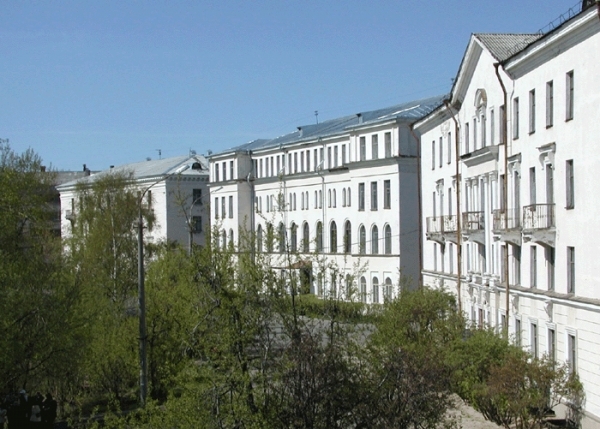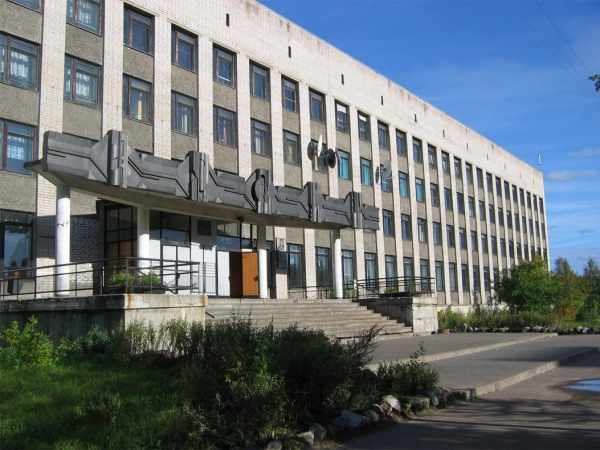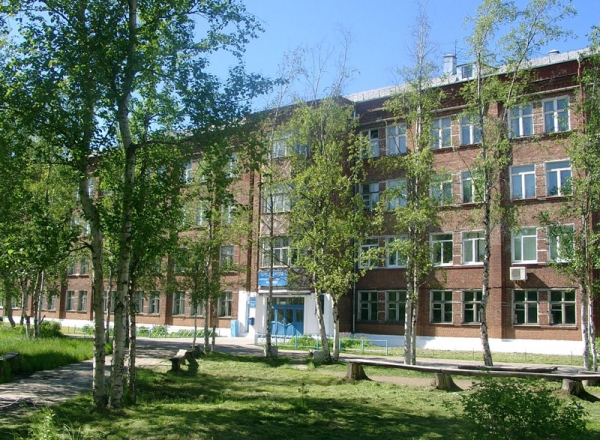ИнститутыИнститут математики, информационных и космических технологий Заочный финансово-экономический институт Институт естественных наук и биомедицины Институт комплексной безопасности Институт медико-биологических исследований Институт педагогики и психологии Институт социально-гуманитарных и политических наук Институт строительства и архитектуры Институт теоретической и прикладной химии Институт физической культуры, спорта и здоровья Институт филологии и межкультурной коммуникации Институт экономики и управления Институт энергетики и транспорта Гуманитарный институт филиала в Северодвинске Институт судостроения и морской арктической техники филиала в Северодвинске University |
Set up on the basis of Arkhangelsk State Technical University (ASTU), the Northern (Arctic) Federal University named after M.V. Lomonosov (NArFU) is a higher educational institution established by RF President Dmitry Medvedev’s Decree dd. 8 June 2010. The university can already boast many achievements, and the plans for the future are also promising.
Among NArFU’s historical landmarks is the year 2011 – the period of its formation. In May, the university was joined by Pomor State University, Peter the Great Forestry Engineering College in Arkhangelsk and Severodvinsk Technical College.
The university is updating and improving their educational programs. In particular in 2010, when new institutes were being formed on the basis of existing institutions and faculties – Institute of Construction and Architecture (based on ASTU Faculty of Construction), Institute of Energy and Transport (based on the Faculty of Industrial Power Engineering and Faculty of Mechanics), Forestry Engineering Institute (based on the Forestry Faculty, Faculty of Natural Resources and Faculty of Mechanical Wood Technology), Institute of Theoretical and Applied Chemistry (based on the Faculty of Chemistry), Institute of Oil and Gas, Institute of Economics, and Institute of Information and Space Technologies. In 2012, the Integral Safety Institute appeared at NArFU. In the beginning it will offer only full-time studies at the bachelor level. The 2012 students who are going to be matriculated into “Technospheric Security” special program can major in the following three fields: “Protection in Emergency Situations”, “Fire Safety” and “Industrial safety”. The third step in developing the university was merger with the federal higher education institution of Sevmashvtuz (Sevmash Technical College) in 2012. Further merging with three vocational schools in Severodvinsk and one in Nenets Autonomous Okrug is underway. With Severodvinsk educational institutions in its structure, NArFU will have a technological cluster in Severodvinsk. Sevmashtuz will serve the basis for new Institute of Shipbuilding and Arctic Marine Engineering – an institution to appear in the framework of cooperation agreement with United Shipbuilding Corporation (USC) signed in the late 2011. The federal educational institution is young but has managed to take huge steps towards becoming a center for exploration and development of the Arctic. This is, by the way, also noted by the respected guests who visit NArFU. This is how Aleksei Kudrin, former Finance Minister and now Chairman of the Board of Regents at NArFU, commented on the progress of the university in the second meeting of the board: “I admit that I have seen a lot of universities and today I was positively impressed. The university is only two years old and has made a serious progress. The research at NArFU is up to date. Here life is bubbling, and compared with other universities NArFU is not an inch behind.” Let's turn to examples to provide proofs. What are the university’s recent achievements? Innovative scientific research is one of the most important activities the university is focusing on. In 2011, the volume of the funding allocated for science development purposes was doubled, as compared to 2010. NArFU has completed the primary stage in formation of its scientific innovational system that includes a number of centers and laboratories. Among them are the Center of Collective Use of Scientific Equipment “Arktika” and the Center for Space Monitoring of the Arctic. The 12 modern laboratories gathered under the roof of “Arktika” Center make it possible for different groups of scientists to perform interdisciplinary research in one common place. The opening in September 2011 of the electronic reading room of Boris Yeltsin presidential library can also be called a landmark project. This is a small model of the scientific library of the future - the heart, soul and mind of the university. Its implementation is a serious indicator of innovation. The small-scale model will give rise to a future mega-project – the building of a university research library to become the leading, and most important, super-modern spiritual book store in the region. The construction of the new scientific university library started in March 2012 and is expected to be completed by the end of 2013. Designed to become Russia’s most modern library, it will become a catalyst in the development of not only the university, but also the whole region. In 2011, a unique publishing and printing complex named after V. N. Bulatov was opened. It is equipped with the machinery you cannot find in other parts of North-West Russia. Unquestionably, the new publishing and printing complex will make sure that scientific papers of NArFU professors and teachers, as well as other important and necessary printed products, will be published quickly. No less important were the complex expeditions to the Arctic – to the Novaya Zemlya, Franz Joseph Land, the Northern Sea Route and the White Sea. On one of those trips, on board the vessel “Professor Molchanov”, the great idea of a “Floating University” was born. The idea was supported by the Russian Geographical Society and the Northern Hydrometeorological Department. In April 2012, the project even won the presidential grant! The “Floating University” project allows the combination of the educational process and research activities directly on board the ship. The first voyage of the “Floating University” is scheduled for June 2012. The 300th anniversary of Mikhail Lomonosov’s and the 150th anniversary of Fridtjof Nansen’s birthday were marked by several Russian and international scientific forums and meetings that took place both at the university and in the region. In 2012, many forms of cooperation were tested – joint seminars and meetings of students and PhD students from Russia and Norway. Five cooperation agreements with leading, educational, scientific and business structures in Norway were signed: Northern Research Institute (Norut) in Tromsø, University of Nordland (Bodø), The High North Center for Business and Governance (Bodø), and NArFUs strategic business partner – oil company «Statoil». This trend promises to continue. 2012 was a year-long celebration of the signing of the Kirkenes Declaration and the establishment of the Barents Euro-Arctic Region. A lot of work has been done for the past two decades. The international activities of NArFU were acknowledged by the Ministry of Education in December 2011, when the Minister of Education Andrey Fursenko handed the award from the government to NArFU rector Elena Kudryashova. In the coming year, NArFU will be tasked with the development of its core policies, the strategy and program for developing its institutes, and the formation of a system for working with the regional authorities in the North-West federal districts. The university has established close cooperation with the regional authorities in Arkhangelsk. Employees at NArFU are taking part in working groups within the Russian Federal Ministry of Foreign Affairs, Ministry of Regional Development, Ministry of Education – which all in some way are related to the Arctic – and have participated in the development of several federal programs. Among them are the “2020 Strategy for the Development of the Arctic Region”, “Strategic Goals for Economic Development in the North-West Federal District”, “NArFU Development Program”. Another project has recently been given a go ahead: “Arkhangelsk – the University City”. The provisions stated in these documents are of great importance for both NArFU and Arkhangelsk oblast and an important part of the federal development. Among NArFU’s other projects are the Day of Arctic, which was celebrated for the first time on the 29th of February 2012. The day had a serious program of events, which were attended by Igor Orlov, the governor of Arkhangelsk oblast. |
|



